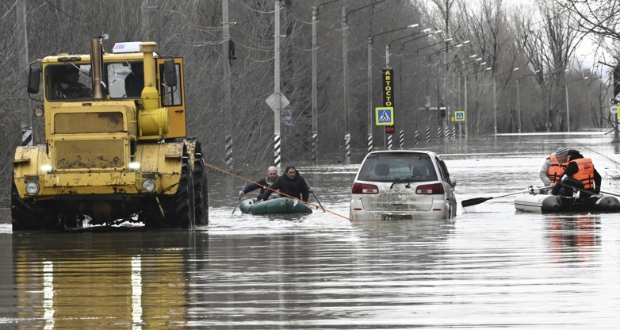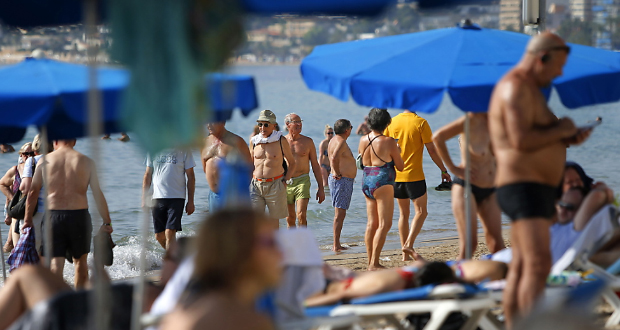Publicité
Throwing out the baby with the bathwater
Par
Partager cet article
Throwing out the baby with the bathwater

Reacting to my paper “On Politics”, published on 3 December 2019, a reader by the name of Roshan Beeharry had this to say: “The more I read Mr Virahsawmy’s articles the more I feel he is selective as well as confused in his observations. He resigned from the Labour Party following his pieces on both the MSM and Labour Party rubbing shoulders with Modi, whom he criticized with such vehemence and the rebutal (in fact he meant rebuttal) by Yatin Varma. He had derided Modi for obtaining power with only some 39% of the electoral votes. Today he is extolling “Great political thinkers and leaders like Machiavelli, Napoleon, Lenin, Mao Tse-Toung or General de Gaulle” for their strategies and tactics in capturing power!!! Lenin and Mao Tse Toung were responsible for the death of millions of their fellow citizens for remaining in power. General de Gaulle was responsible for the misery in French colonies of Africa…”
It is clear that the ‘non-selective’ and ‘non-confused’ R. B. has either not understood the main point of the paper which argues that the winner of the Nov 2019 general elections was a better strategist and tactician than his opponents, or he wants to sling mud on those who do not agree with him/her.
Mixing issues, quoting out of context and throwing out the baby with the bathwater seem to be the favourite non-selective and non-confused approach of those enamoured supporters of Varma and Modi. Their Manichaen mindset prevents them from seeing the complexities and subtleties of reality made up of opposing forces. Nothing, no one, no situation is absolutely black or white. We live in a world of different shades of grey. R. B. cannot understand why Machiavelli, Napoleon, Lenin, Mao Tse-Toung or General de Gaulle are often cited as political geniuses and not Varma and Modi. He does not seem to know that Lenin and Chairman Mao are known as great socialist revolutionaries who freed their respective countries, but that does not mean that they did not make mistakes. Lenin died a few years after the successful October Revolution (1917) and Stalin succeeded him. The non-selective and non-confused R. B sees no difference between Lenin and Stalin. Moreover, he should read a non-selective and non-confused history of WW2 to take cognizance of the immense contribution of Stalin and the Russian people in the defeat of Nazi power. Moreover, he does not want to know that General de Gaulle contributed a lot to the successful fight against Adolf Hitler (greatly admired by RSS and R.B. probably), Naziism, fascism and defeated the Vichy government of France under Marshal Pétain.
Saying that does not mean condoning the atrocities of Stalin (not Lenin), colonialism and neocolonialism. That is a different story. The Manichaen approach has blinded R.B. Will he ever learn?
...Where angels fear to tread
Another reader who claims to be a university graduate has this to say on my article on literacy published on Tuesday 10 December: “... Creole is NOT a language. It is a patois. English is a language. So is French. So is Hindi. So is Chinese........better stop here, this list might never end. All languages have syntax, grammar, verbs, nouns and adjectives. Creole has no syntax or grammar, which makes it so easy. English, though, has over a million words/expressions that can only be learned over a lifetime. Creole, with its 2,500-word dictionary (featured in l’express a while ago) spoken on a small island of 720 square miles, a spit in a vast ocean, does not really present Mauritius as a major international league table occupant. It’s OK for some to say “eta, cause creole do” but it won’t get you very far off Mauritius’ coastline. Had I the means to do so, I’d insist that English was taught in Mauritius by the “immersion method”…”
Let us see how many inaccuracies can ONE short text of roughly 150 words contain:
1) A patois is a LANGUAGE spoken by a small group whose members have to resort to a different language if they want to be heard by a greater audience. This is the scientific meaning of the word. Mauritian is the L1 of 90% and the L2 of the remaining 10%. It cannot be a patois. Here is the proof: People who speak French at home and in intimate circles will automatically use Mauritian if they want to win a seat in the Legislative Assembly. Which language, according to the scientific definition, is a patois in the Mauritian political context? Please don’t give a dog a bad name and then hang it!
2) Creole is not a language; it is a category of language which is also known as ‘contact language’. There are many such languages in the world: Afrikaan, one of the national languages of South Africa; Sango, the national and official language of the Central African Republic, Bahasa Indonesia, the national and official language of Indonesia; English, yes English, the quasi-universal language is also a creole language.
3) The reader of my article argues that Mauritian “has no syntax or grammar”. What is grammar? It refers to all phonological, syntactic and semantic rules governing the use of a language. Absence of grammar makes oracy and literacy impossible. Syntax refers to the “the arrangement of words and phrases to create well-formed sentences in a language”. It is unfortunate that my reader excels in the use of ill-defined terms. Syntax is a branch of grammar and the description of word classes is a branch of syntax together with plural, tense and aspect markers etc. A university graduate should know that.
4) On lexis, my reader reveals great ignorance, to say the least. This university graduate says that Mauritian has only 2,500 words. It is shocking that someone, who claims to have studied languages, is not aware that the 3rd edition of Dictioner Morisien which was published a few months ago contains about 20,000 words. Am I right to say that the English language has a term for this type of attitude: half-baked intellectual?
5) The Total Immersion Method is efficient if learners of L2 are fully lite- rate in their L1. It is used to teach L2 oracy (speech in a new foreign language) and not literacy. Full bilingual literacy normally uses a combination of methods ranging from grammar translation to different direct methods, including Total Immersion’.
6) To ignore the use of Mauritian because it is of no use to international communication is by far the most stupid statement ever made. Iceland has a population of 350,000 people who cherish their local language which is both national and official. It is a developed country where all citizens master at least ONE second language, the most popular being English. Iceland uses its national language to develop ‘CULTURE TOURISM’.
To conclude
If my readers want to improve their knowledge and minds on this issue, I would like to invite them to read these two documents found on my website:
http://boukiebanane.com/training-in-bilingualliteracy/
Publicité
Les plus récents






